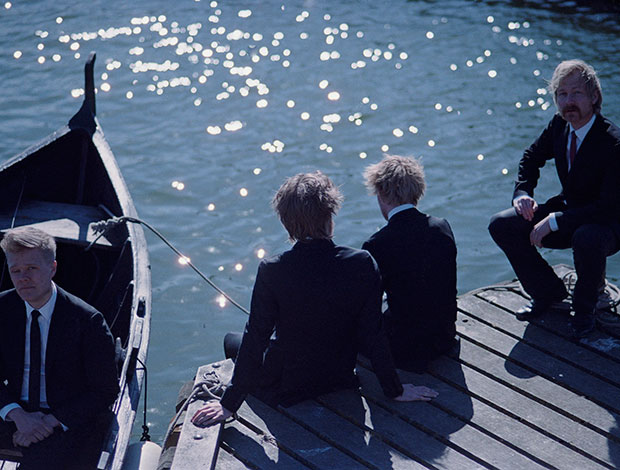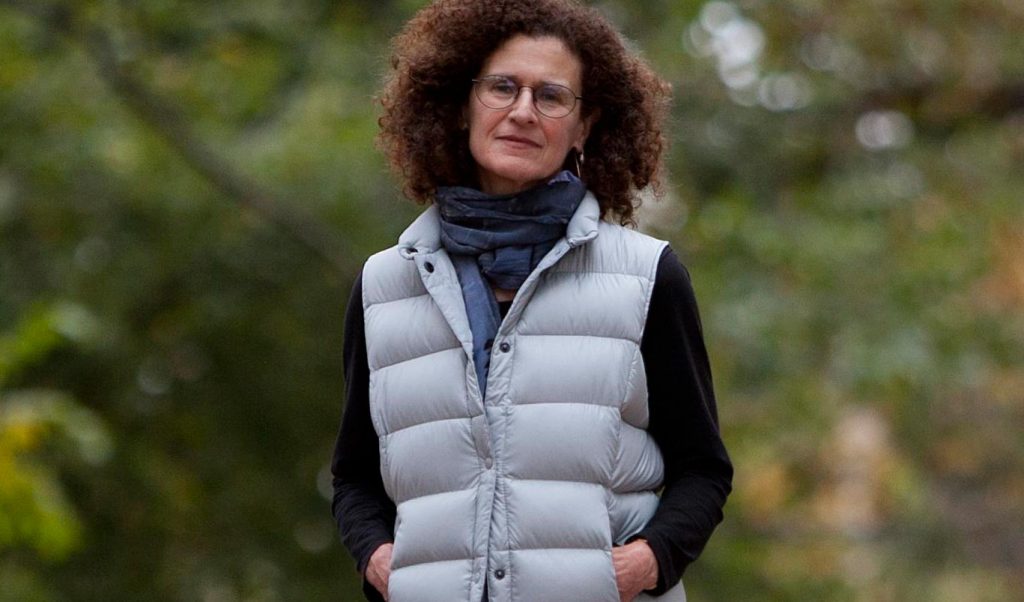Please note: This post is a part of series.
Gertrude Stein’s Tender Buttons is sometimes described as a work of “verbal cubism.” Wrote Marcel Proust in a letter: “For several years, Beethoven’s late quartets and Franck’s music have been my primary spiritual nourishment.” You probably know that Karl Ove Knausgård wrote a music column when he was sixteen (covered: Simple Minds, Talking Heads, David Bowie, and Eric Clapton). And you?
At UMS we were inspired by the impact of performance on other kinds of creative work, so we started an Artists in Residence program.
Here at MQR, I hope to offer “small bites” of this experience. You’ll see a series of posts focusing on cross-pollination and inspiration in the arts. Alongside each post, UMS will offer up a pair of tickets to an Ann Arbor-area reader of the MQR Blog (it could be you!), and then we’ll follow up with our reader after his or her performance experience as part of the next post in the series.
Two violins, a viola, and a cello
Recently, composer Garrett Schumann wrote about the history of string quartets:
… continuity is always present in string quartet music because the ensemble has not changed at all since Haydn wrote his first quartet in the 1760s. By contrast, composers, from Beethoven to the students in the University of Michigan’s music composition department, constantly tinker with the orchestra to create different, seemingly new, sounds. Even the piano continued to evolve, mechanically speaking, throughout the eighteenth, nineteenth, and twentieth centuries. But, the string quartet has consisted of two violins, a viola, and a cello for over 250 years–it may be a perpetually Classical ensemble. Obviously, nineteenth, twentieth, and twenty-first century composers have stretched the sonic envelope of string quartet music to incredible lengths.
A musical form with such history has a history of mingling with writers, too. Here’s what happened when Virginia Woolf had her wait with it:
The poet Kelly Cherry had quartets for parents: “I had parents who were string-quartet violinists and who particularly loved the late Beethoven quartets. I had grown up loving that music myself; and there is no art more interested in problems of development than the Beethoven string quartets.” Patti Smith never sang with a string quartet, until she sang with the Kronos Quartet: “In some ways, once I figured out my path, I found it to be liberating. Beautiful. I felt like it was singing a delicate aria or something.” Writers and string quartets can be collaboratively friendly (Neil Gaiman, Kid Koala).
Therefore, in the spirit of finding inspiration in the quartet, we’re giving away two tickets to Danish String Quartet to one lucky fan of Michigan Quarterly Review.
Not only is this “one of the best quartets before the public today” (Washington Post), but they describe themselves as “three Danes and one Norwegian cellist, making this a truly Scandinavian endeavor. We are often joking about being modern Vikings–perhaps a touch more harmless than our ancestors since we are not pillaging cities or razing the English coastline!”
To enter to win, comment on the link to this post on MQR’s Facebook page or tweet to @mqr_tweets in one of the following ways: (1) Share a favorite string quartet link, (2) Share a favorite piece of writing about string quartet music, (3) Share why you’d like to go to this performance, (4) Other (you choose! be creative if you like), but still a comment. Comment by this Friday, October 16.
The winner will be selected at random and announced on MQR’s Facebook page. Meanwhile, tickets to Danish String Quartet are also on sale over at UMS.



